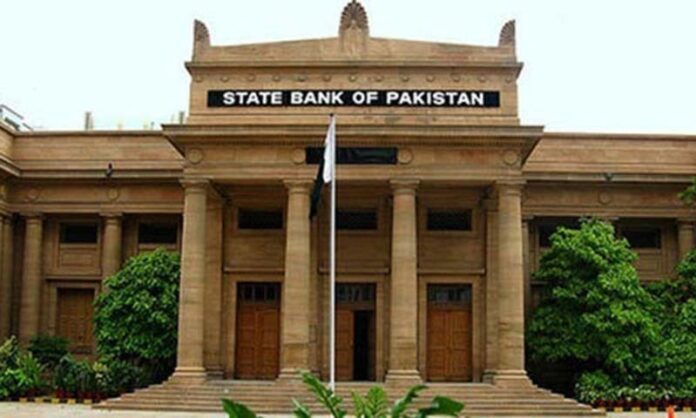–Macroeconomic stabilisation process has led to a decline in twin deficits
–Achieving the real GDP growth target of 4pc appears unlikely
KARACHI: The State Bank of Pakistan’s report on the first quarter of the fiscal year 2019-20 is somewhat cautious, with the SBP noting that Pakistan’s economy has moved progressively, but that achieving real GDP growth of 4pc seems unlikely.
The report, which was released on Monday, stated that Pakistan’s macroeconomic stabilization process picked up momentum with the initiation of the IMF’s Extended Fund Facility programme.
The report said that the stabilization process has led to a decline in twin deficits. The current account deficit in Q1FY20 fell to less than half of last year’s level, primarily on the back of significant import compression. On the fiscal front, the overall deficit remained lower as compared to the same period last year, which was due to revenue enhancement and expenditure control measures.
“On the external front, the balance of payments continued to improve during Q1FY20. Beside significant improvement in trade deficit, and with the receipt of the first EFF tranche from the IMF and increase in foreign portfolio investment, the current account gap was plugged by the available financial flows. These inflows also helped the SBP to increase its foreign exchange reserves by $656.2 million and reduce its net forward liabilities by $1.3 billion during the quarter,” the report read.
But on a less positive note, the SBP noted that the goal of achieving a 4pc growth target will be difficult.
According to the report’s executive overview, “Following the modest GDP growth of 3.3pc last year, the government set a 4pc growth target for FY20. This recovery was premised on better performance by the agriculture and industrial sectors…however, based on the sluggish start during the first quarter, it appears that achieving the annual targets for agriculture and industry may prove to be challenging.”
Revised estimates for the Kharif season suggest that the production of important crops is likely to fall short of target for FY20, while large-scale manufacturing sector witnessed a decline of 5.9pc in Q1-FY20 on year on year basis.
The report also noted that average inflation reached 11.5pc in the first quarter, which was double the inflation observed in the same quarter last year, and the highest inflation since the fourth quarter of the fiscal year 2012.
According to the report, “For consumers, the increase in inflationary pressures in the economy (especially food items) was particularly disconcerting, as it impacted their real incomes. This high inflation outcome was driven largely by the pass-through of exchange rate depreciation, correction in energy prices, shortage of food items, and revenue measures taken by the government.”
The SBP expects that inflation will stay within the range of 11-12pc for the full year.
As per the report, there were four key developments in the first quarter: first, the SBP continued to keep the monetary policy consistent with the medium-term inflation target; and consolidation efforts were also visible on the fiscal front, both on the revenue and expenditure sides.
Second, the system of a market-based exchange rate was implemented, to which the interbank foreign exchange market adjusted relatively well.
Third, the government abided by its commitment to avoid deficit monetization, including rollover of SBP debt.
Fourth, the government actively pursued documentation efforts, including asset revaluations, and tight financial scrutiny.
Looking forward, the SBP said that the government must address underlying structural vulnerabilities and put the economy on a balanced and sustainable growth trajectory. There is also a need to build on gains on the ease of doing business front.
The SBP also said it is important for firms to leverage on the facilitative policies, particularly the export-promotion incentives.
























